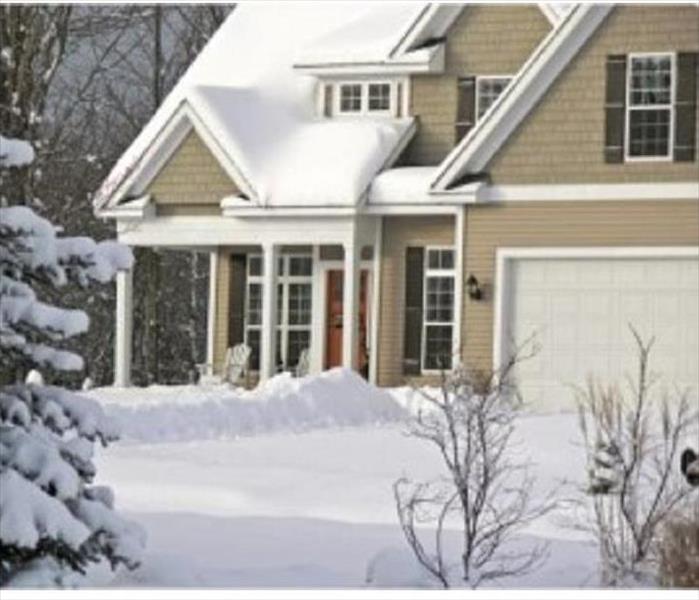Prepare Your Home for Winter Weather
1/15/2018 (Permalink)
By preparing your home now, you can protect yourself and your family from a winter storm.
Follow these tips and suggestions on how best to prepare your home for winter:
- Listen to weather forecasts regularly and check your emergency supplies whenever a period of extreme cold is predicted. Although periods of extreme cold cannot always be predicted far in advance, weather forecasts can sometimes provide you with several days notice.
- If you plan to use a fireplace or wood stove for emergency heating, have your chimney or flue inspected each year. Ask your local fire department to recommend an inspector or find one online.
- If you'll be using a fireplace, wood stove, or kerosene heater, install a smoke detector and a battery-operated carbon monoxide detector near the area to be heated. Test them monthly and replace batteries twice a year. All fuel-burning equipment should be vented to the outside. Each winter season have your furnace system and vent checked by a qualified technician to ensure they are functioning properly.
- If you are over 65 years old, place an easy-to-read thermometer in an indoor location where you will see it frequently. Your ability to feel a change in temperature decreases with age. Older adults are more susceptible to health problems caused by cold. Check the temperature of your home often during the winter months.
- Insulate any water lines that run along exterior walls so your water supply will be less likely to freeze. To the extent possible, weatherproof your home by adding weather-stripping, insulation, insulated doors, and storm windows or thermal-pane windows.
- If you have pets, bring them indoors. If you cannot bring them inside, provide adequate shelter to keep them warm and make sure they have access to unfrozen water.
Checklist
- Insulate walls and attic.
- Caulk and weather-strip doors and windows.
- Install storm windows or cover windows with plastic from the inside.
- Insulate any water lines that run along outer walls. This will make water less likely to freeze.
- Service snow-removal equipment.
- Have chimney and flue inspected.
- Install easy-to-read outdoor thermometer.
- Repair roof leaks and cut away tree branches that could fall on your home or other structure during a storm.






 24/7 Emergency Service
24/7 Emergency Service
